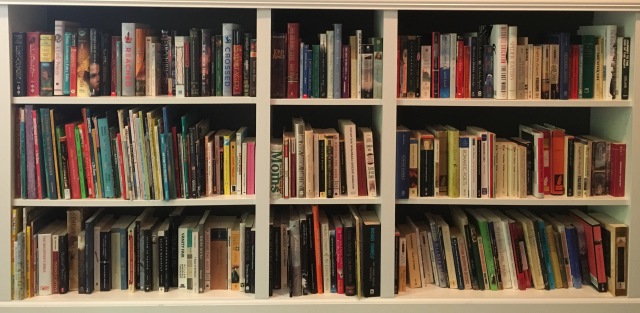
Dear Daughters,
During 20+ years as a writer-editor, I’ve learned a lot of lessons about how words work–and about how people misuse them. Some of these lessons have to do with grammar and mechanics, or with syntax and semantics. But the most important ones have to do with thinking itself–which language both empowers and distorts. Perhaps the most important such lesson is this:
There are many ways to think and talk–with roughly equal accuracy and rationality–about nearly every topic. In the vast majority of cases, there is no one right description of the problem to be solved, no single way to answer the question posed, no unique string of words to appropriately report the set of facts that should be considered. (That’s why people do things like repeating the same basic idea with three different phrases …)
It’s a short leap from this recognition to a related one: Everything you will ever hear or read–about anything–is something less than the gospel truth on that topic. This doesn’t mean that people are always lying to you. It just means that people are always people–and that what people are capable of grasping and conveying with our words is more like “creative nonfiction” than it is like “the gospel truth.”
Tell Me the Nonfiction
As I’ve argued before on this blog, your mind is a nonfiction writer. And so is everyone else’s.
What any of us can share at any given moment is no more and no less than a vastly simplified representation of reality–the narrow slice of the world that we can see and put into words at a particular place and time. Our minds don’t see it all, and our words don’t convey all that our minds see.
Even if and when we’re telling the truth as best we can, it’s never really the whole truth or nothing but the truth. It’s just the best account we can give, given the current constraints we’re facing (one of which, by the way, is our skill with the language we’re speaking).
Your job as a listener, reader, and thinker (like my job as editor) is to figure out how accurate and compelling such accounts really are.
Listen Carefully
In my experience, it’s best to start by assuming that every account is just a work of nonfiction–an attempt by a particular author, working from a particular perspective, to say what matters given the available time and space. This will put you in a good place to listen to different perspectives and push your own thinking–to remain both open to new claims and reasonably critical of them.
It should prompt you to ask questions like “where is this writer/speaker/fellow human coming from?” “Does she know what she’s talking about?” “How careful is she being with her facts and her words?” These are useful questions whether you’re snapchatting stories on your phone or reading articles in scholarly journals. They’re also useful to turn back on yourself now and then, when your mind starts telling you stories.
Just don’t kid yourself that “no one account is the gospel truth” means “all accounts are equal.” What we tell each other may be at best nonfiction, but some nonfiction accounts are better than others–not because they contain some mysterious thing called “The Truth” but because they help us understand the world more completely, clearly, and deeply.
Of course, some accounts are also outright fictions, or intentional misdirections, but let’s talk about those another time. Till then …
I love you (truly),
Dad